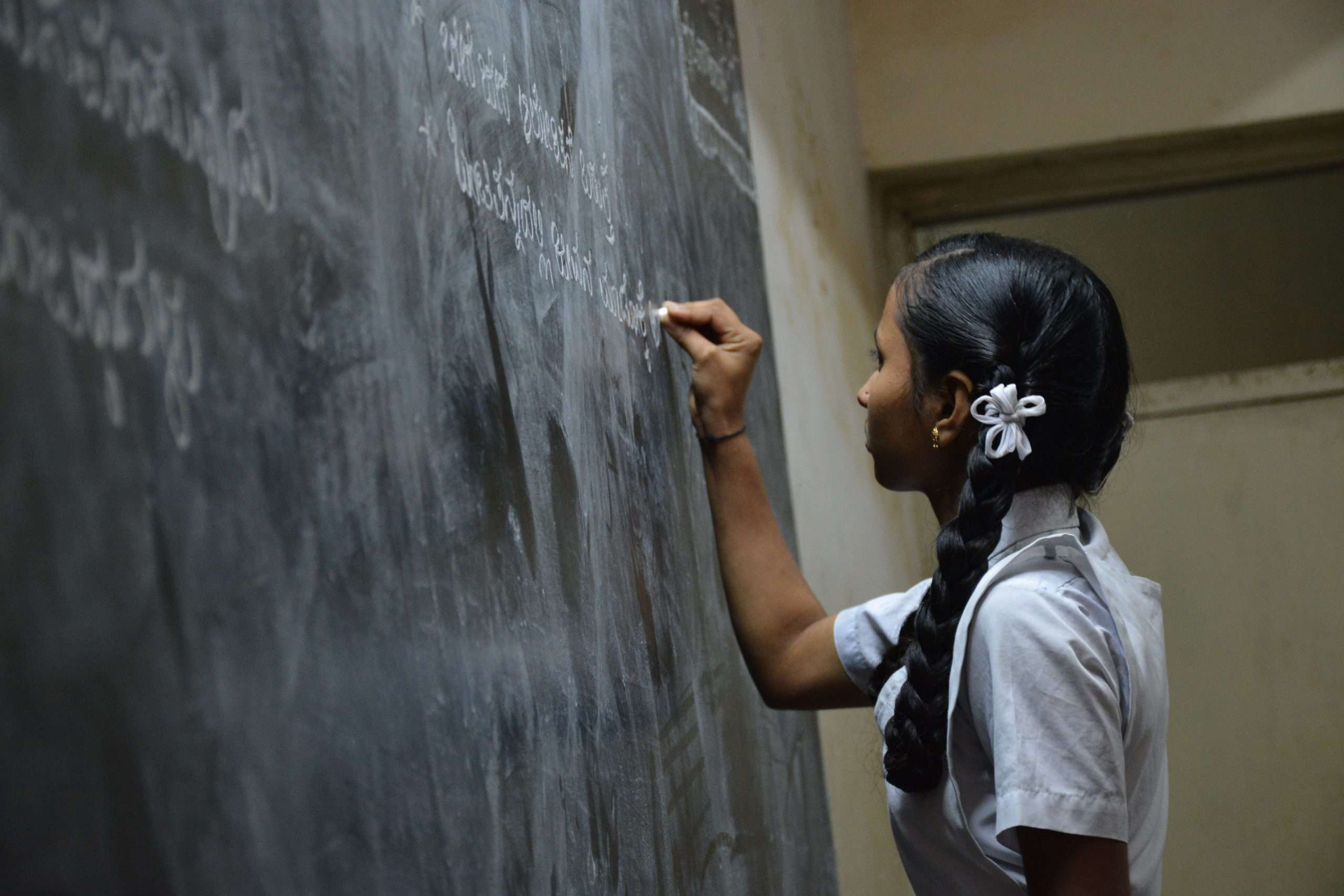Introduction

The 2020 Rural Education Issues and Their Impact to Academic Excellence. As the world shifts to a new normal with the continuing rise of digitalization, rural education is increasingly facing difficult challenges. With limited resources and few opportunities, it’s becoming harder for students in these communities to access quality education that can help them reach their goals.
It’s an unfortunate reality that rural students are often left behind when it comes to educational opportunities and resources. In this article, we will explore the most pressing issues facing rural education today and how they are impacting academic excellence in 2020.
The problems with rural education
The problems with rural education are many and varied, but they all have a profound impact on the academic excellence of rural students. One major problem is the lack of funding for rural schools. This lack of funding leads to inadequate resources and facilities, which in turn leads to lower test scores and higher dropout rates.
Another big problem is teacher turnover. Because rural schools often cannot offer the same salaries or working conditions as urban schools, they have a hard time attracting and retaining quality teachers. This high turnover rate means that students do not have the benefit of continuity in their education, and it further exacerbates the already-poor resources available to them.
Yet another issue is transportation. Many rural students have to travel long distances to get to school, which can lead to fatigue and absenteeism. Additionally, parents may not be able to afford to send their children to school if they have to pay for gas or bus fare.
All of these problems of Rural Education Issues combine to create a perfect storm of educational disadvantage for rural students. They start behind and never catch up, leading to poor academic outcomes and a cycle of poverty that is difficult to break.
The impact of the problems to academic excellence
There are many problems that impact academic excellence in rural education. Some of these problems include: lack of access to resources, lack of qualified teachers, and high levels of poverty. Each of these problems has a unique impact on academic excellence.

Lack of access to resources is a major problem for rural schools. Many rural schools do not have the same level of resources as their urban counterparts. This can lead to a number of problems, such as lower test scores and higher dropout rates.
Lack of qualified teachers is another problem that impacts academic excellence in rural education. Many rural areas have a shortage of qualified teachers. This shortage can lead to larger class sizes and less individualized instruction.
High levels of poverty are also a major problem for rural schools. Poverty can lead to a number of problems, such as poor nutrition and inadequate housing. These problems can impact students’ ability to learn and succeed in school.
Possible solutions to the problem
There are many potential solutions to the problem of rural education. Some of these solutions include:
-Improving teacher training and support in rural areas
-Increasing funding for rural schools
-Improving transportation options for rural students
-Providing more resources and support for struggling rural schools
-Encouraging more parents and community members to get involved in their local rural school.
How Can Education Transform Rural Development
Education plays a crucial role in transforming rural development by empowering individuals and communities, fostering economic growth and sustainability, and promoting social equality. In this essay, we will explore the different ways education can contribute to rural development and its impact on individuals and society.
Firstly, education empowers individuals by providing them with knowledge and skills necessary for personal and professional growth. Through education, individuals in rural areas can gain literacy and numeracy skills, crucial for understanding and participating in the modern world. This empowerment enables rural communities to tackle their own challenges and take control of their development process.
Secondly, education fosters economic growth and sustainability in rural areas. By equipping individuals with relevant skills and knowledge, education enhances the employability of rural populations. It enables them to engage in various economic activities, such as agriculture, entrepreneurship, and vocational trades. As a result, education reduces poverty, promotes self-sufficiency, and supports rural economies.
Thirdly, education promotes social equality by ensuring equal access to opportunities and resources. By providing quality education to both males and females in rural areas, gender disparities can be reduced. Education empowers women to participate in decision-making processes, leadership roles, and contribute to rural development. Additionally, education provides marginalized groups, such as ethnic minorities, with the tools to overcome social exclusion and discrimination, leading to a fairer and more inclusive society.
Furthermore, education plays a vital role in building sustainable and resilient rural communities. Environmental education helps individuals understand the importance of sustainable practices, conservation of natural resources, and mitigating the negative impact of climate change. By integrating environmental conservation into their daily lives and agricultural practices, rural communities can contribute to the overall sustainability of their region.
Moreover, education facilitates the adoption and utilization of technology in rural areas. Technological advancements offer enormous potential for rural development, improving agricultural productivity, access to information and communication, and connecting rural communities to urban areas and global markets. Through education, individuals can acquire digital literacy, allowing them to harness the benefits of technology and bridge the digital divide between rural and urban areas.
Additionally, education encourages innovation and creativity, which are essential drivers of rural development. By nurturing critical thinking, problem-solving, and entrepreneurial skills, education enables individuals to address local challenges and create sustainable solutions. Innovation in agriculture, for example, can enhance productivity, reduce crop loss, and increase income for rural farmers.
Furthermore, education strengthens social cohesion and community engagement in rural areas. By promoting inclusive education, individuals from diverse backgrounds not only gain knowledge but also develop mutual understanding, tolerance, and respect. This fosters a supportive and cohesive community, where individuals work together for the betterment of their region.
It is important to note that education should not be limited to formal schooling. Informal and non-formal education initiatives play a crucial role in reaching out to remote rural areas, ensuring lifelong learning opportunities for all. Community-based learning programs, vocational training, and adult education are equally important in transforming rural development.
Education holds significant potential in transforming rural development. By empowering individuals, fostering economic growth and sustainability, promoting social equality, and strengthening communities, education creates a pathway towards inclusive and sustainable rural development. Government, civil society organizations, and other stakeholders must prioritize education as a fundamental pillar for rural development and invest in its enhancement.

Exploration of Skills Based vs Knowledge Based Education
Education is the key to success, and it has been the backbone of every society for centuries. However, the methods and approaches to education have evolved over time, and one of the most prominent debates in the field is the exploration of skills-based versus knowledge-based education. While both approaches have their merits, it is important to understand their differences and evaluate their effectiveness in preparing students for the challenges of the modern world.
First and foremost, knowledge-based education focuses on the acquisition and retention of information. Traditional classroom settings emphasize memorization and regurgitation of facts and figures, with little emphasis on application. This approach has its advantages, particularly in subjects like history and science that require a strong foundation of knowledge. However, critics argue that knowledge-based education often fails to develop critical thinking and problem-solving skills, limiting students’ ability to apply what they have learned in real-life situations.
On the other hand, skills-based education prioritizes practical application and hands-on learning. This approach encourages students to engage in experiential activities that promote creativity, problem-solving, and critical thinking. Proponents of skills-based education argue that it better prepares students for the challenges of the modern workforce, which demands adaptability, collaboration, and innovation. By promoting skill development, students have a better chance of succeeding in careers that require practical, hands-on expertise.
However, one cannot discount the importance of knowledge in education. Knowledge forms the foundation upon which skills are built. Without a solid understanding of core concepts, skills may lack depth and context. Knowledge-based education provides students with a breadth of information, allowing them to make connections between different subjects and develop a well-rounded understanding of the world. It also equips students with the ability to think critically about complex issues and make informed judgments.
While skills-based education may appear more progressive in some aspects, it is not without its limitations. Critics argue that skills alone cannot guarantee success if they are not grounded in a strong foundation of knowledge. Without foundational knowledge, skills may be limited in their application and may not be transferrable across different contexts. A surgeon, for example, needs to have a deep understanding of anatomy and physiology to successfully perform surgeries, even if they possess exceptional technical skills.
Moreover, knowledge-based education provides students with a sense of cultural heritage and intellectual traditions. By studying literature, history, and philosophy, students gain insight into the ideas and values that have shaped society. This broad understanding allows them to appreciate diverse perspectives and engage in critical reflection. Skills-based education, on the other hand, may focus predominantly on practical skills but can sometimes neglect the broader context in which those skills are applied.
Ultimately, education should strive to strike a balance between knowledge and skills. Recognizing the value of both approaches, several progressive educational models attempt to integrate the best elements of each. These models emphasize a curriculum that promotes the acquisition of knowledge while also encouraging the development of critical thinking, problem-solving, and creativity. By combining a strong foundation of knowledge with practical skills, students are better prepared to face the challenges of the modern world.
The exploration of skills-based versus knowledge-based education is a complex and ongoing debate. Both approaches have their merits, and it is crucial to consider the context and goals of education when evaluating their effectiveness. A well-rounded education encompasses both knowledge and skills, providing students with a solid foundation of information while also equipping them with the practical abilities to navigate the challenges of the modern world.

Conclusion on Rural Education Issues
In conclusion, these problems have a significant impact on academic excellence. To ensure that all students receive quality education regardless of their location, educational stakeholders need to come up with strategies and solutions to address the problems faced by rural areas. Sustainable investment in infrastructure development and training for teachers can help bridge the gap between urban and rural schools and provide better learning opportunities for students living in remote areas. With proper support from both the public and private sectors, we can make sure that no child is left behind when it comes to access to quality education.


1 thought on “The 2020 Rural Education Issues and Their Impact to Academic Excellence”